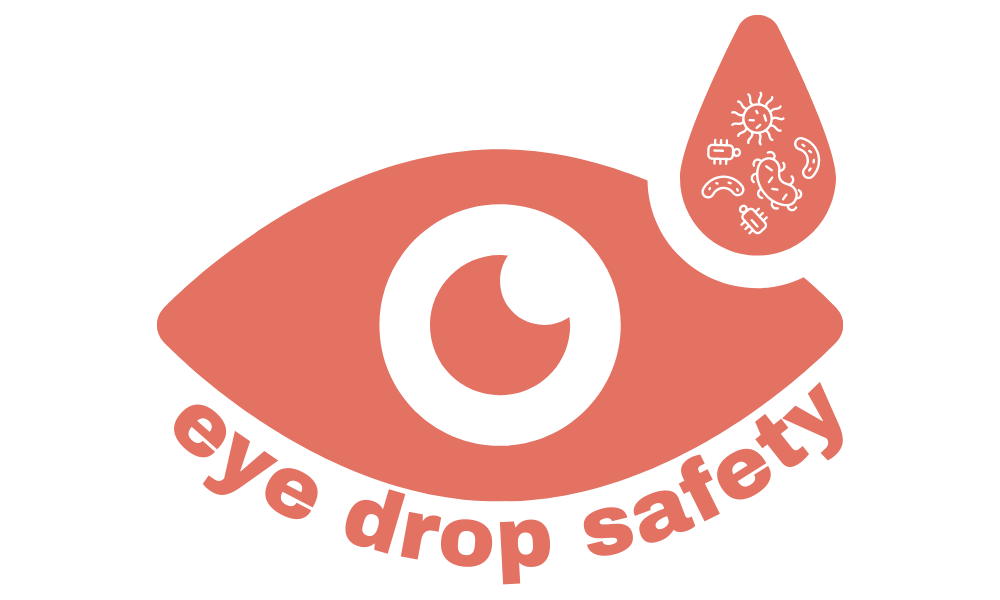Frequently Asked Questions about Eye Drop Safety
-
Dry Eye Foundation believes this is a time for consumers to exercise great caution with respect to where they purchase eye drops and how readily they trust sellers, companies and brands which may be relatively new to the market.
An eye drop which was listed in the FDA drug database but whose manufacturer had not been inspected by the FDA caused a 14-state outbreak of extensively treatment-resistant Pseudomonas aeruginosa infections. These infections resulted in, among other things, eight reports of vision loss and three deaths.
Dry Eye Foundation has identified more than 200 eye drops that are not even listed in the FDA database. The FDA literally does not know what they are, where they are made, or whether they are made according to any recognized manufacturing standard.
-
We cannot tell you if an OTC eye drop is safe.
We can tell you about red flags that make an eye drop demonstrably unsafe, such as improperly packaged eye drops with no protection against bacterial contamination, or potentially unsafe, such as eye drops from unknown sources, with unknown ingredients, and manufactured in unknown conditions.
-
Yes: DailyMed.
DailyMed is a National Library of Medicine website.
You can use it to look up any eye drop whose manufacturer has submitted its OTC drug listing to the FDA.
-
NDC = National Drug Code
The NDC number is assigned to a product when a company registers its eye drop with the FDA. It consists of a number identifying the company, followed by a number identifying the drug, and (in some cases) followed by a number identifying the specific package of the drug.
Having an NDC number means that the eye drop has been registered with the FDA. It does not ensure that the drug is safe.
It is also important to be aware that we have observed at least one company that used an NDC number on their box but this number did not actually exist. Always verify NDC numbers with the FDA database. Obviously, an unverifiable NDC number is a red flag.
-
No.
Over-the-counter eye drops are regulated on what amounts to “the honor system”.
A company which lists an OTC eye drop with the FDA is representing to the FDA that they have complied with all of the applicable FDA requirements for the manufacturing and commercialization of their eye drop.
But no one is tasked with reviewing whether they actually HAVE complied with any of the requirements. The system to upload OTC drug listings is fully automated.
EzriCare Artificial Tears was listed on DailyMed. It caused a multi-state outbreak of infections which led to loss of vision, loss of eyes and loss of life. The reasons are not yet fully known, but we do know that it was a preservative-free eye drop packaged in the wrong kind of bottle.
All eye drops should be listed on DailyMed. It at least means that the company manufacturing and/or packaging it is registered with the FDA and can be found. But an FDA product listing should not be interpreted as an indication or evidence of safety.
Some companies register and obtain an FDA listing in order to create the illusion of legitimacy and safety, and point to the DailyMed listing as evidence of regulatory compliance.
-
No.
However, it greatly increases the potential that it is unsafe.
Ignoring the FDA is not a common behavior among reputable, trustworthy eye drop manufacturers following Current Good Manufacturing Practices.
-
Some companies claim that their eye drops are nutritional supplements and therefore are not required to comply with rules for OTC drugs.
This is incorrect. All eye drops are drugs. See Understanding how eye drops are regulated for more information.
-
Some homeopathic eye drop brands are listed on DailyMed while others are not. Homeopathic eye drops are required to be listed on DailyMed for the same reason that all other OTC eye drops are required to do so: legally, they are drugs. We recommend against purchasing any eye drops that are not listed on DailyMed.
-
ItOn April 10, 2023 the FDA issued a Public Safety Notification on Amniotic Fluid Eye Drops, directed specifically at Regener-Eyes and StimulEyes brands.
Both Lite and Pro versions of Regener-Eyes are listed on DailyMed as OTC drugs, although they were formerly described as prescription-only.
StimulEyes is not listed on DailyMed.
